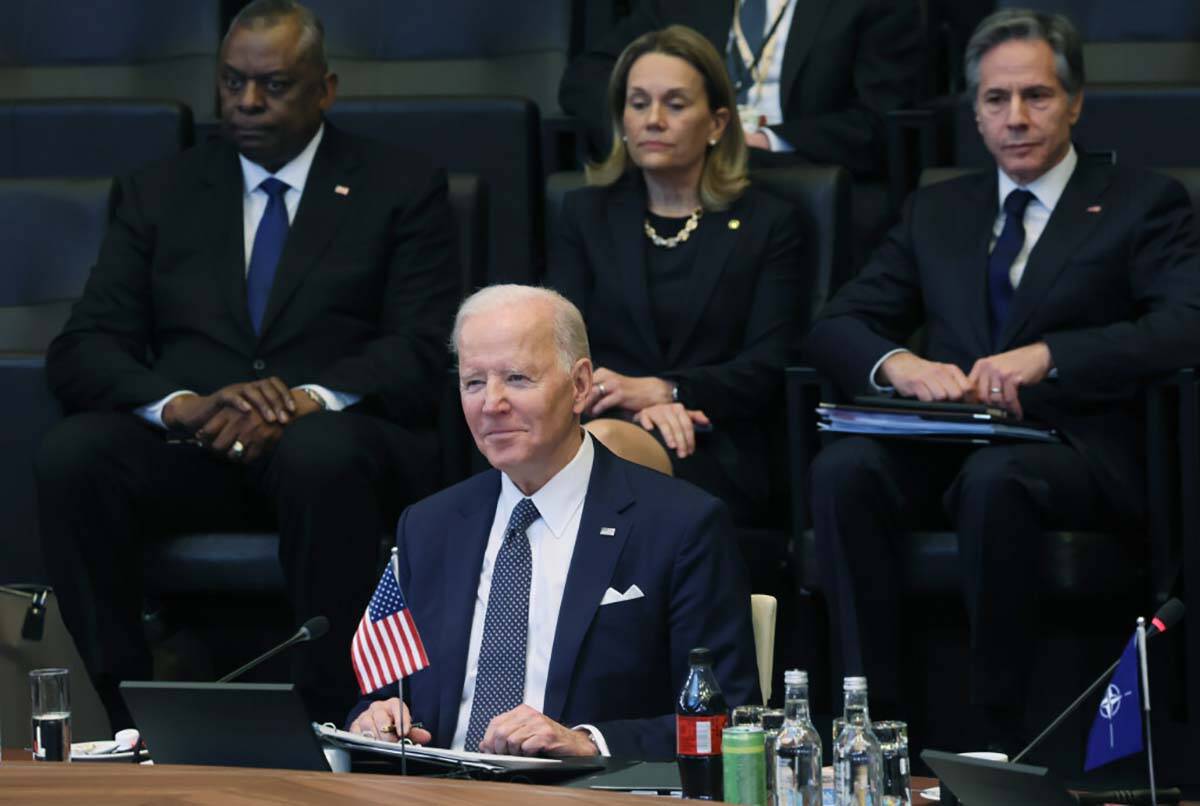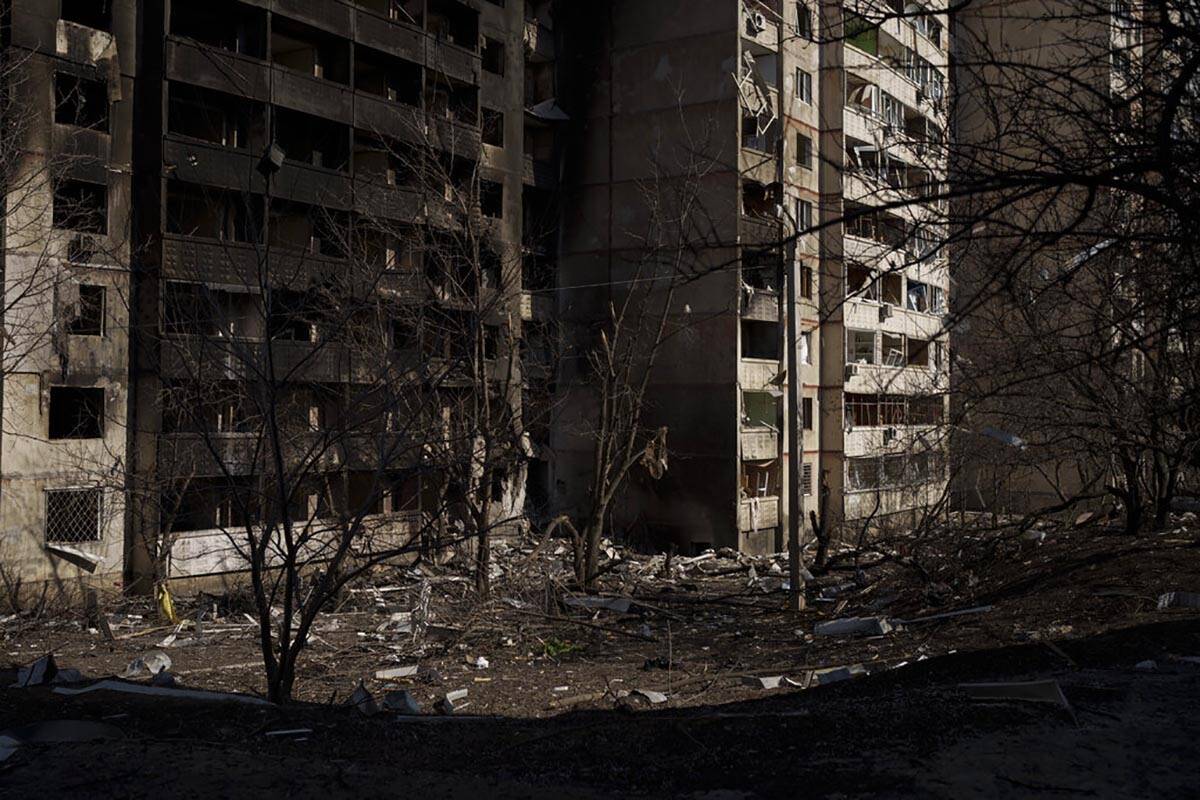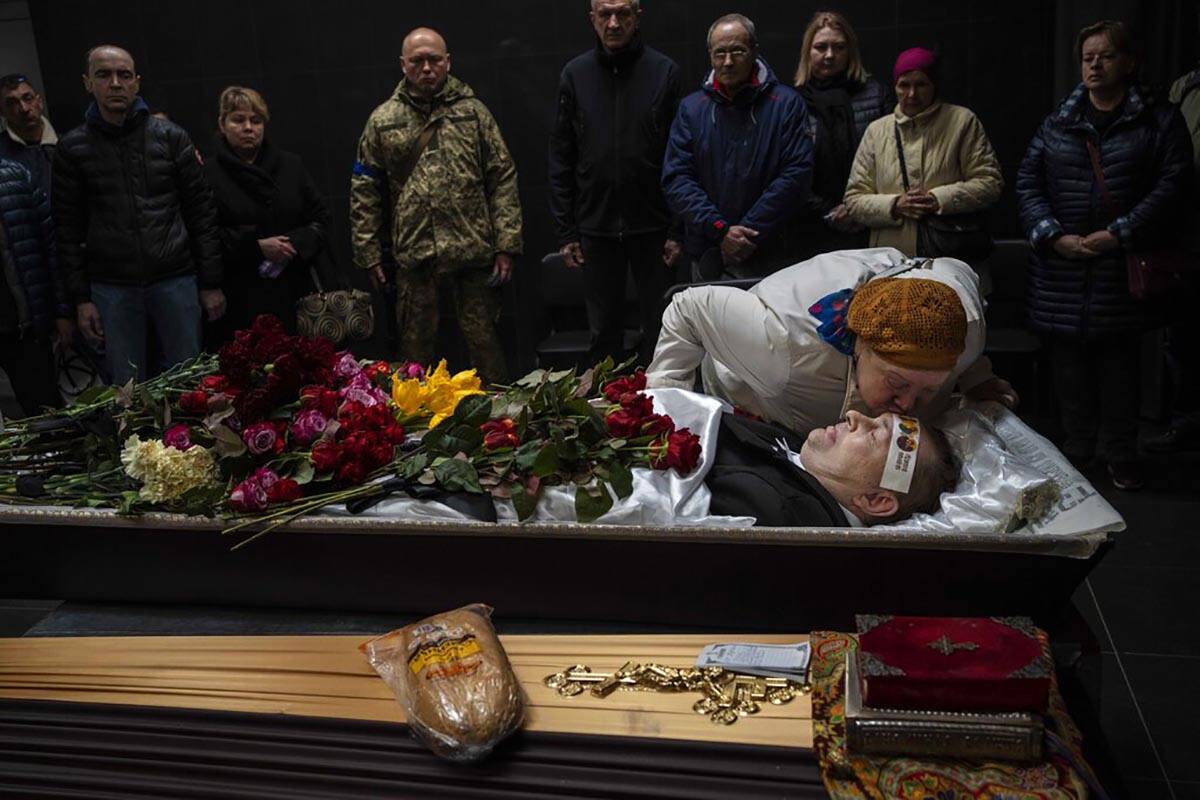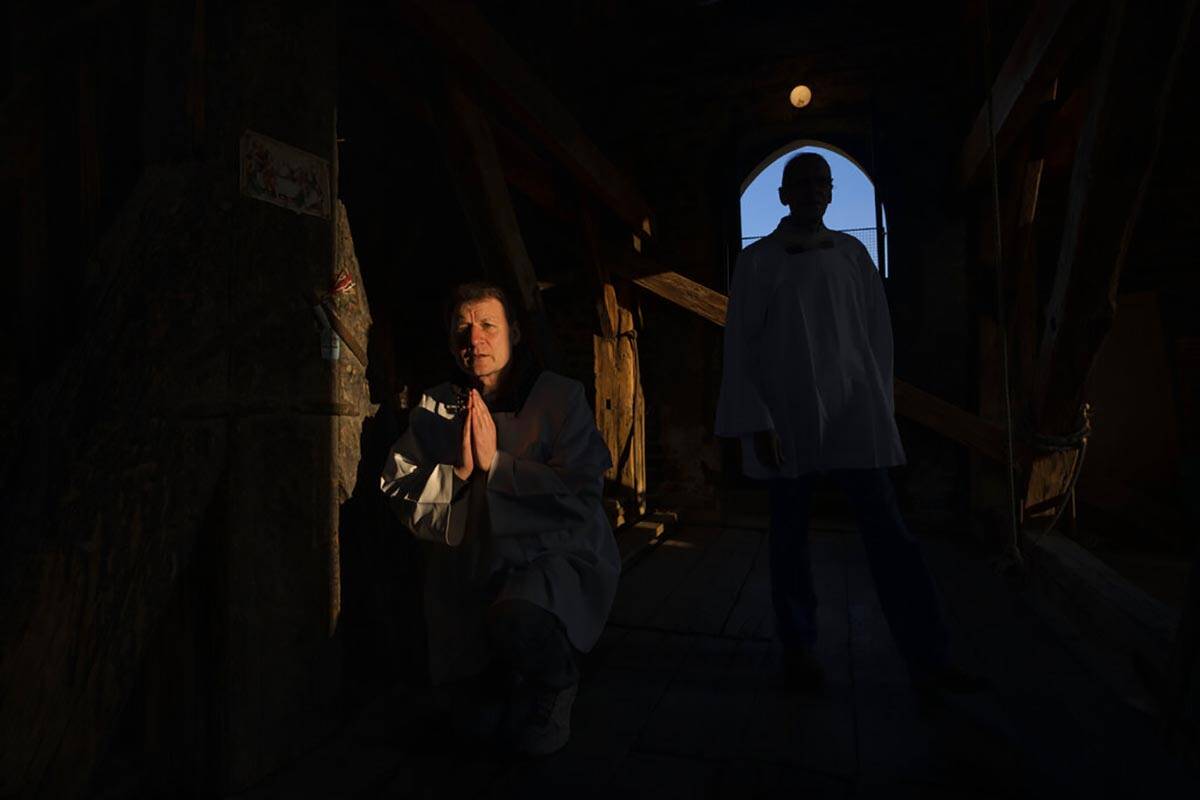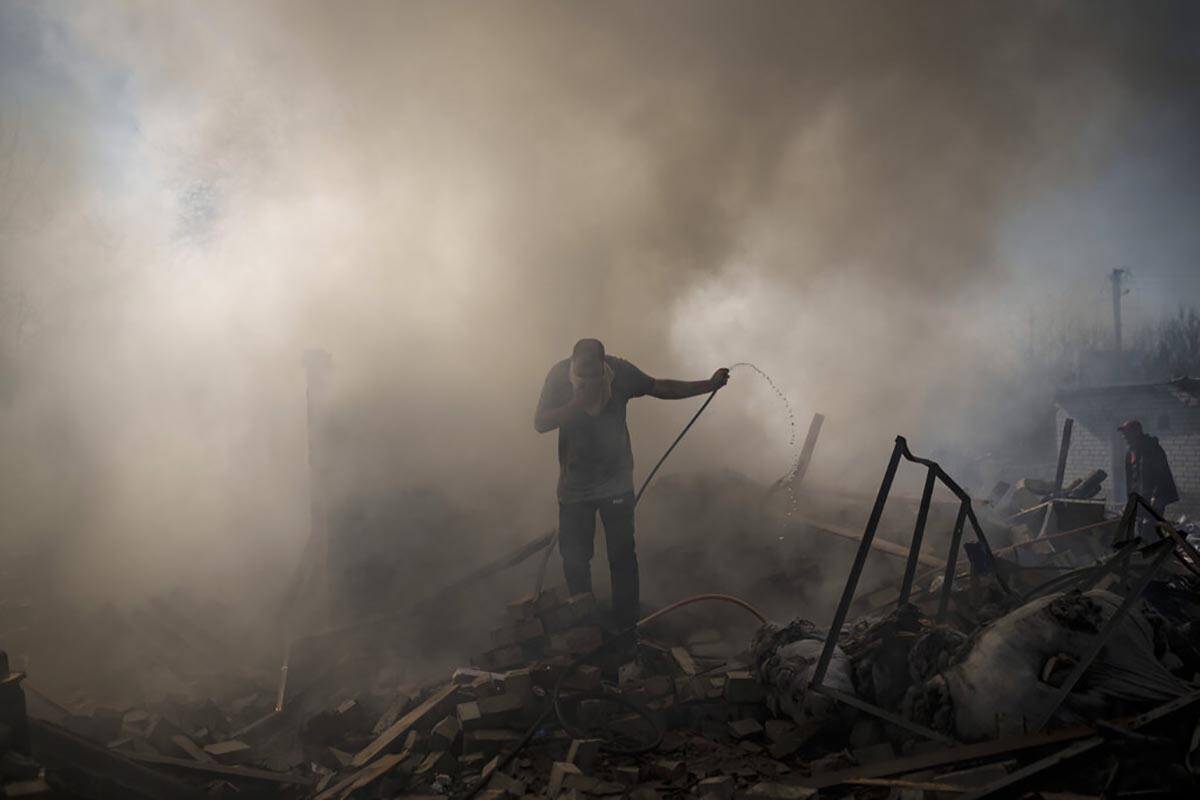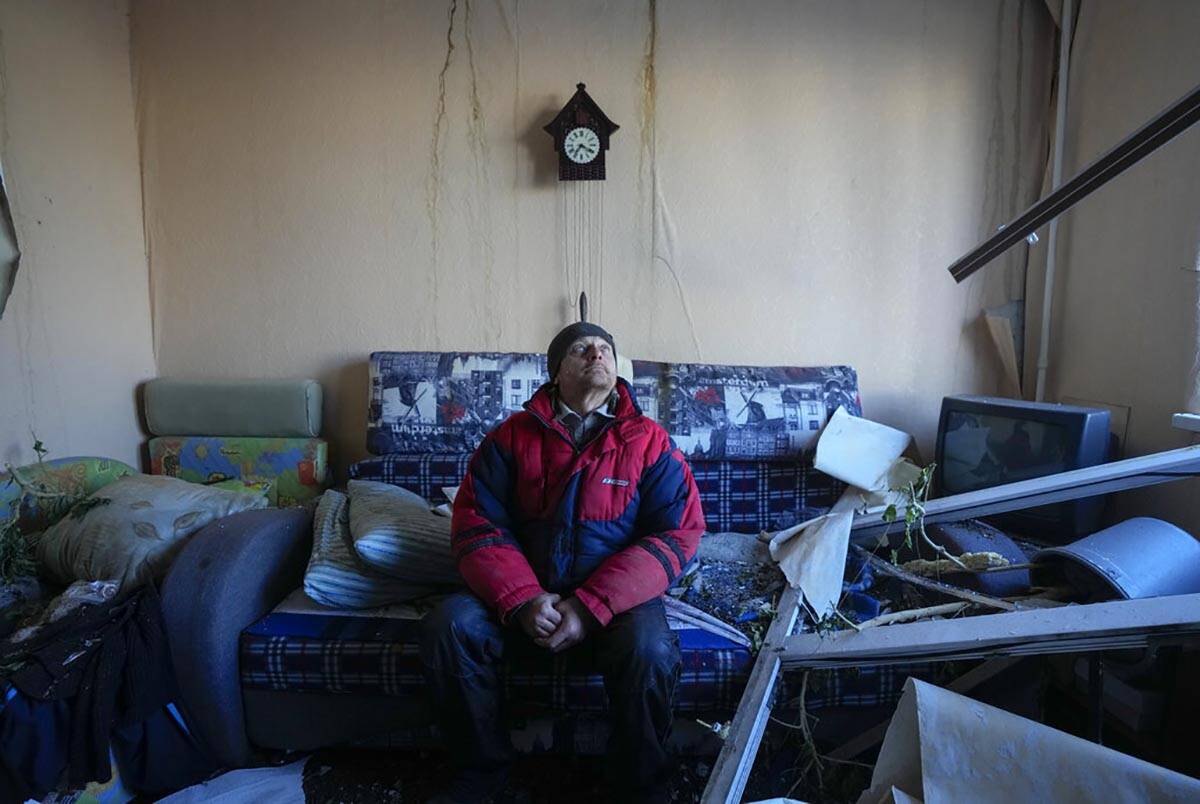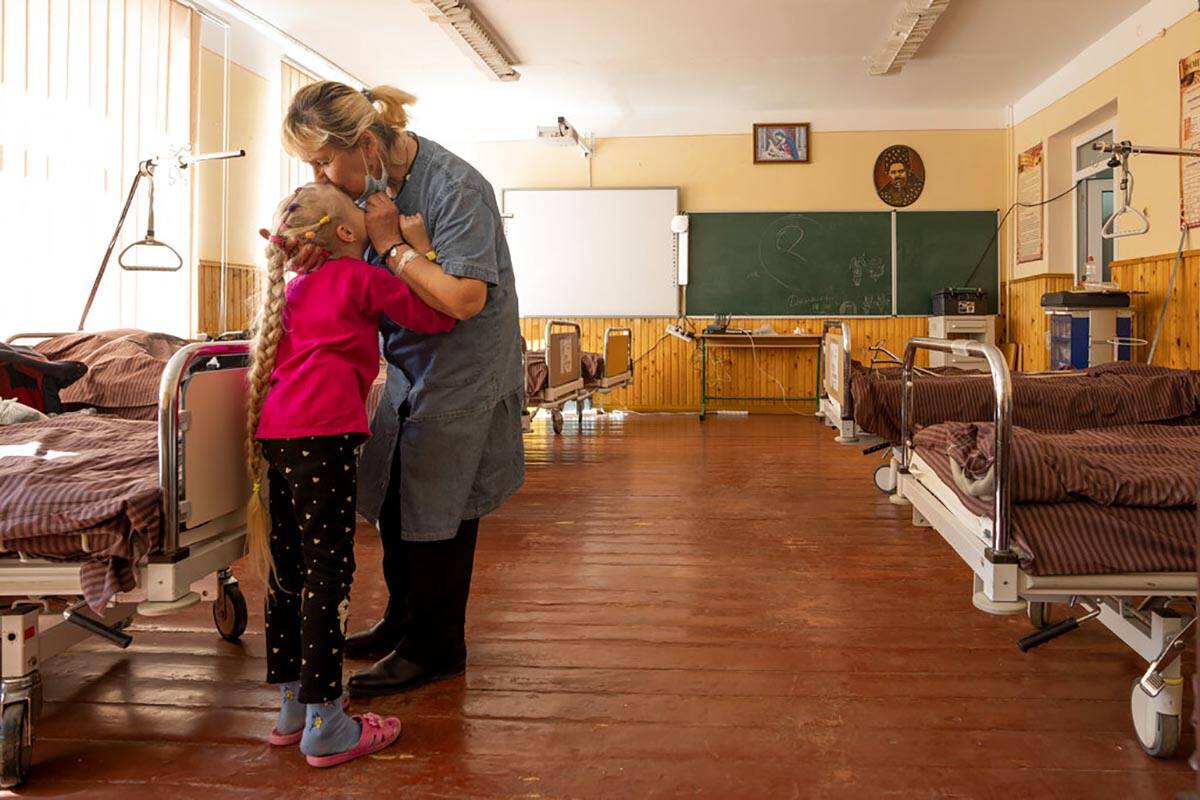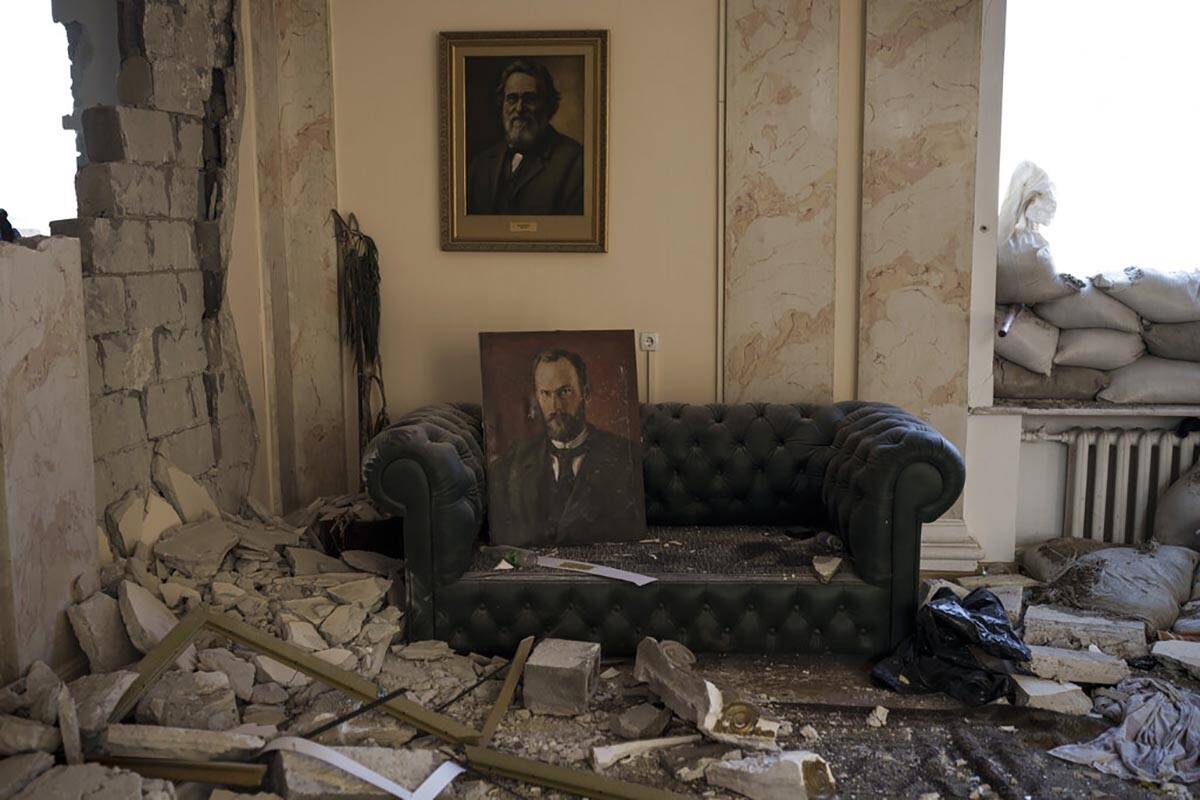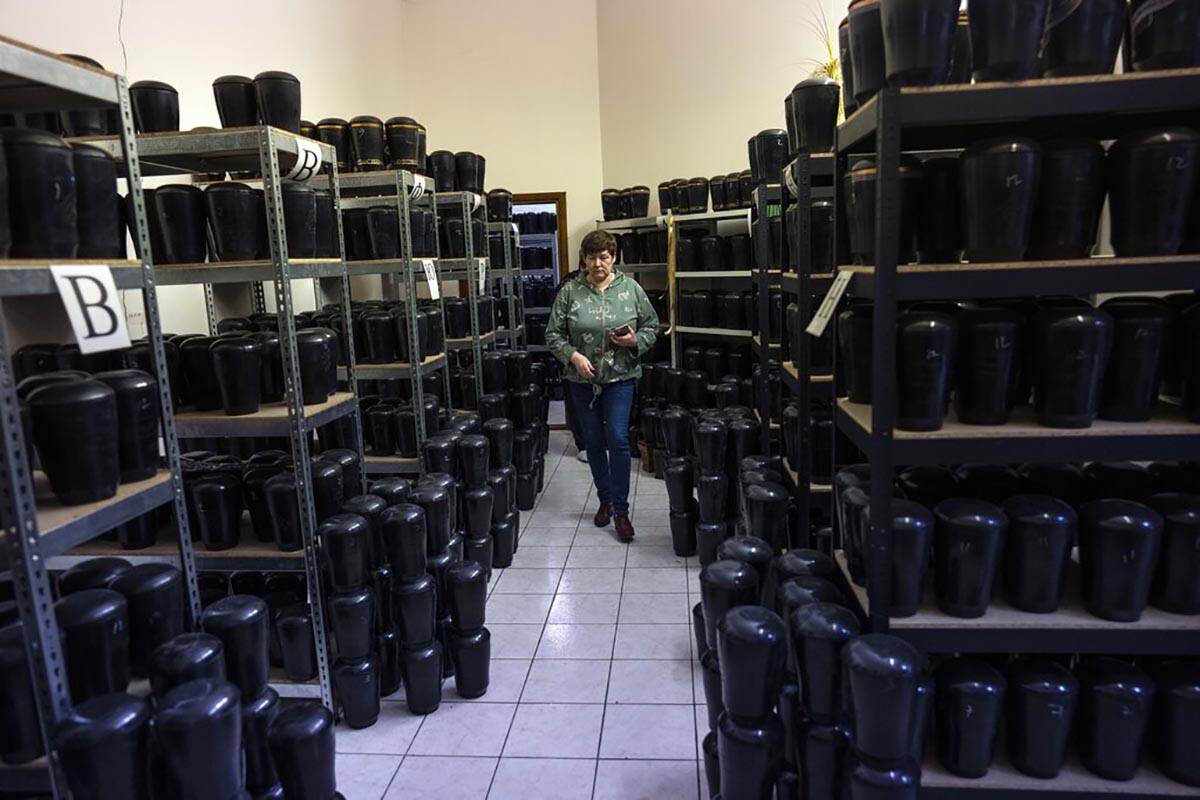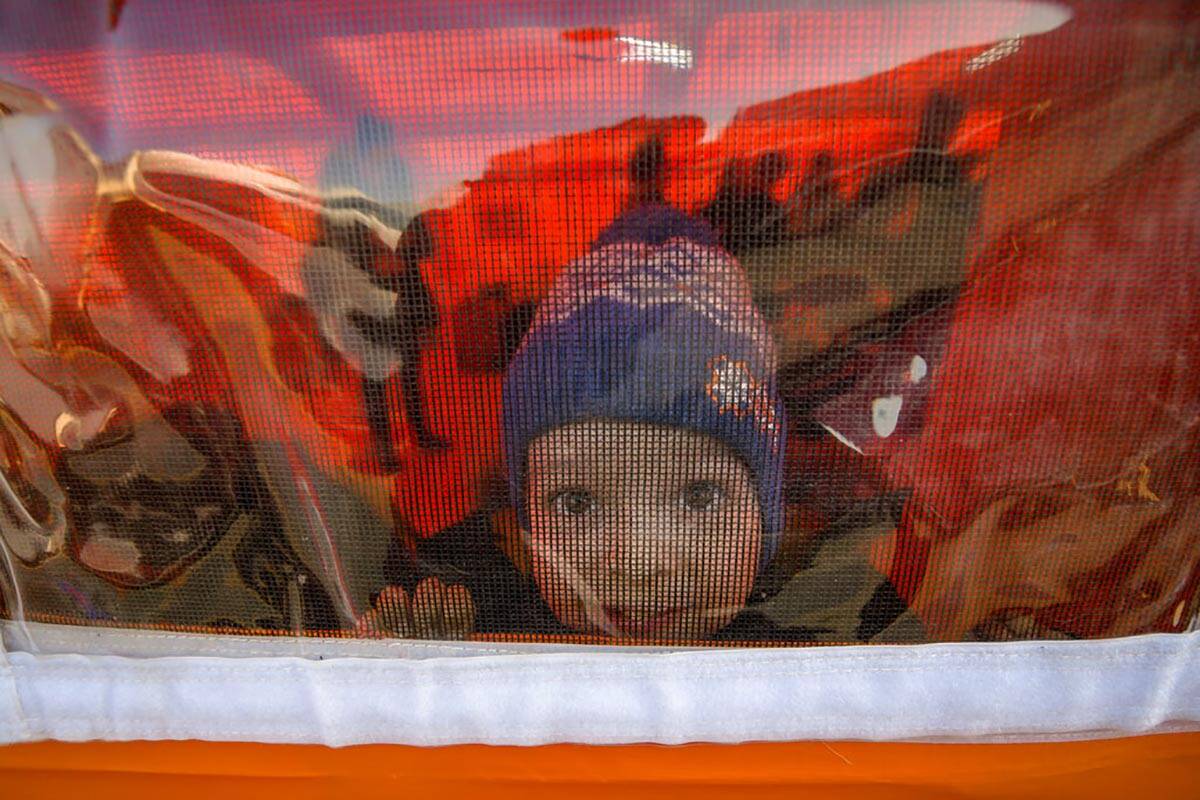War in Ukraine may be entering more dangerous phase
WASHINGTON — President Vladimir Putin’s war in Ukraine is approaching a new, potentially more dangerous phase after a month of fighting has left Russian forces stalled by an outnumbered foe. He is left with stark choices — how and where to replenish his spent ground forces, whether to attack the flow of Western arms to Ukrainian defenders, and at what cost he might escalate or widen the war.
Despite failing to score a quick victory, Putin is not relenting in the face of mounting international pressure, including sanctions that have battered his economy. The Western world is aligned largely against Putin, but there have been no indications he is losing support from the majority of the Russian public that relies predominantly on state-controlled TV for information.
Ukrainian defenders, outgunned but benefiting from years of American and NATO training and an accelerating influx of foreign arms and moral support, are showing new signs of confidence as the invading force struggles to regroup.
Russian shortcomings in Ukraine might be the biggest shock of the war so far. After two decades of modernization and professionalization, Putin’s forces have proved to be ill-prepared, poorly coordinated and surprisingly stoppable. The extent of Russian troop losses is not known in detail, although NATO estimates that between 7,000 and 15,000 have died in the first four weeks — potentially as many as Russia lost in a decade of war in Afghanistan.
Robert Gates, the former CIA director and defense secretary, said Putin “has got to be stunningly disappointed” in his military’s performance.
“Here we are in Ukraine seeing conscripts not knowing why they’re there, not being very well trained, and just huge problems with command and control, and incredibly lousy tactics,” Gates said at a forum sponsored by The OSS Society, a group honoring the World War II-era intelligence agency known as the Office of Strategic Services.
Significant shifts seen
Battlefield trends are difficult to reliably discern from the outside, but some Western officials say they see potentially significant shifts. Air Vice-Marshal Mick Smeath, London’s defense attaché in Washington, says British intelligence assesses that Ukrainian forces probably have retaken two towns west of Kyiv, the capital.
“It is likely that successful counterattacks by Ukraine will disrupt the ability of Russian forces to reorganize and resume their own offensive towards Kyiv,” Smeath said in a brief statement Wednesday.
Ukraine’s navy said Thursday it sank a large Russian landing ship near the port city of Berdyansk.
Faced with stout Ukrainian resistance, Russian forces have resorted to bombardment of urban areas but made little progress capturing the main prize — Kyiv. The Pentagon said Wednesday that some Russian troops were digging in at defensive positions outside of Kyiv rather than attempting to advance on the capital, and that in some cases the Russians have lost ground in recent days.
In an assessment published Thursday, the Atlantic Council said a major Russian breakthrough is highly unlikely.
Not long before Putin kicked off his war Feb. 24, some U.S. military officials believed he could capture Kyiv in short order — perhaps just a few days — and that he might break the Ukrainian military within a couple of weeks. Putin, too, might have expected a quick victory, given that he did not throw the bulk of his pre-staged forces, estimated at more than 150,000, into the fight in the opening days. Nor did his air force assert itself. He has made only limited use of electronic warfare and cyberattacks.
Putin is resorting to siege tactics against key Ukrainian cities, bombing from afar with his ground troops largely stagnant.
More sanctions, help promised
President Joe Biden and Western allies pledged new sanctions and humanitarian aid on Thursday in response to Vladimir Putin’s assault on Ukraine, but their offers fell short of the more robust military assistance that President Volodymyr Zelenskyy pleaded for in a pair of live-video appearances.
Biden also announced the U.S. would welcome up to 100,000 Ukrainian refugees — though he said many probably prefer to stay closer to home — and provide an additional $1 billion in food, medicine, water and other supplies.
The Western leaders spent Thursday crafting next steps to counter Russia’s month-old invasion — and huddling over how they might respond should Putin deploy chemical, biological or even a nuclear weapon. They met in a trio of emergency summits that had them shuttling across Brussels for back-to-back-to-back meetings of NATO, the Group of Seven industrialized nations and the 27-member European Council.
Biden, in an early evening news conference after the meetings, warned that a chemical attack by Russia “would trigger a response in kind.”
“You’re asking whether NATO would cross. We’d make that decision at the time,” Biden said.
However, a White House official said later that did not imply any shift in the U.S. position against direct military action in Ukraine. Biden and NATO allies have stressed that the U.S. and NATO would not put troops on the ground in Ukraine.
The official was not authorized to comment publicly by name and spoke only on condition of anonymity.
Zelenskyy says he needs more help
Zelenskyy, while thankful for the newly promised help, made clear to the Western allies he needed far more than they’re currently willing to give.
“One percent of all your planes, one percent of all your tanks,” Zelenskyy asked members of the NATO alliance. “We can’t just buy those. When we will have all this, it will give us, just like you, 100% security.”
Ukraine: Russia taking hundreds of thousands of civilians
Ukraine accused Moscow on Thursday of forcibly taking hundreds of thousands of civilians from shattered Ukrainian cities to Russia, where some may be used as “hostages” to pressure Kyiv to give up.
Lyudmyla Denisova, Ukraine’s ombudsperson, said 402,000 people, including 84,000 children, have been taken against their will.
The Kremlin gave nearly identical numbers for those who have been relocated, but said they wanted to go to Russia. Ukraine’s rebel-controlled eastern regions are predominantly Russian-speaking, and many people there have supported close ties to Moscow.
A month into the invasion, meanwhile, the two sides traded heavy blows in what has become a devastating war of attrition. Ukraine’s navy said it sank a large Russian landing ship near the port city of Berdyansk that had been used to bring in armored vehicles. Russia claimed to have taken the eastern town of Izyum after fierce fighting.
At an emergency NATO summit in Brussels, Ukrainian President Volodymyr Zelenskyy pleaded with the Western allies via video for planes, tanks, rockets, air defense systems and other weapons, saying his country is “defending our common values.”
U.S. President Joe Biden, in Europe for the summit and other high-level meetings, gave assurances more aid is on its way, though it appeared unlikely the West would give Zelenskyy everything he wanted, for fear of triggering a much wider war.
Around the capital, Kyiv, and other areas, Ukrainian defenders have fought Moscow’s ground troops to a near-stalemate, raising fears that a frustrated Russian President Vladimir Putin will resort to chemical, biological or nuclear weapons.
Biden plans to send natural gas to Europe
President Joe Biden on Friday is expected to announce increased shipments of liquefied natural gas to Europe, part of a long-term initiative to wean the continent off Russian energy after the invasion of Ukraine.
He plans to discuss the issue with Ursula von der Leyen, head of the European Union’s executive arm, shortly before leaving for Poland, the final leg of his four-day trip.
Earlier this week, Von der Leyen said “we are aiming at having a commitment for additional supplies for the next two winters.” And Jake Sullivan, Biden’s national security adviser, recently told reporters that the administration wants to quickly “surge” gas to Europe.
Russian energy is a key source of income and political leverage for Moscow. Almost 40% of the European Union’s natural gas comes from Russia to heat homes, generate electricity and power industry.
After leaving Brussels, Biden travels to Rzeszów in Poland, where U.S. troops are based roughly an hour’s drive from the Ukrainian border. He’ll get a briefing on the humanitarian response to the refugees streaming out of Ukraine and those still suffering inside the country. And Biden will meet with U.S. service members from the 82nd Airborne Division, who serve alongside Polish troops.
Biden is then expected to continue on to Warsaw, where he will meet with Polish President Andrzej Duda on Saturday.
In other developments Thursday
—Ukraine and Russia exchanged a total of 50 military and civilian prisoners, the largest swap reported yet, Ukrainian Deputy Prime Minister Iryna Vereshchuk said.
—The pro-Moscow leader of Belarus, Alexander Lukashenko, warned that Poland’s proposal to deploy a Western peacekeeping force in Ukraine “will mean World War III.”
—In Chernihiv, where an airstrike this week destroyed a crucial bridge, a city official, Olexander Lomako, said a “humanitarian catastrophe” is unfolding as Russian forces target food storage places. He said about 130,000 people are left in the besieged city, about half its prewar population.
—Russia said it will offer safe passage starting Friday to 67 ships from 15 foreign countries that are stranded in Ukrainian ports because of the danger of shelling and mines.
Kyiv and Moscow gave conflicting accounts, meanwhile, about the people being relocated to Russia and whether they were going willingly — as Russia claimed — or were being coerced or lied to.
Russian Col. Gen. Mikhail Mizintsev said the roughly 400,000 people evacuated to Russia since the start of the military action were from the Donetsk and Luhansk regions in eastern Ukraine, where pro-Moscow separatists have been fighting for control for nearly eight years.
Russian authorities said they are providing accommodations and dispensing payments to the evacuees.
But Donetsk Region Gov. Pavlo Kyrylenko said that “people are being forcibly moved into the territory of the aggressor state.” Denisova said those removed by Russian troops included a 92-year-old woman in Mariupol who was forced to go to Taganrog in southern Russia.
Ukrainian officials said that the Russians are taking people’s passports and moving them to “filtration camps” in Ukraine’s separatist-controlled east before sending them to various distant, economically depressed areas in Russia.
Among those taken, Ukraine’s Foreign Ministry charged, were 6,000 residents of Mariupol, the devastated port city in the country’s east. Moscow’s troops are confiscating identity documents from an additional 15,000 people in a section of Mariupol under Russian control, the ministry said.
Some could be sent as far as the Pacific island of Sakhalin, Ukrainian intelligence said, and are being offered jobs on condition they don’t leave for two years. The ministry said the Russians intend to “use them as hostages and put more political pressure on Ukraine.”
Kyrylenko said that Mariupol’s residents have been long deprived of information and that the Russians feed them false claims about Ukraine’s defeats to persuade them to move to Russia.
“Russian lies may influence those who have been under the siege,” he said.
As for the naval attack in Berdyansk, Ukraine claimed two more ships were damaged and a 3,000-ton fuel tank was destroyed when the Russian ship Orsk was sunk, causing a fire that spread to ammunition supplies.
Sending a signal that Western sanctions have not brought it to its knees, Russia reopened its stock market but allowed only limited trading to prevent mass sell-offs. Foreigners were barred from selling, and traders were prohibited from short selling, or betting prices would fall.
Millions of people in Ukraine have made their way out of the country, some pushed to the limit after trying to stay and cope.
At the central station in the western city of Lviv, a teenage girl stood in the doorway of a waiting train, a white pet rabbit shivering in her arms. She was on her way to join her mother and then go on to Poland or Germany. She had been traveling alone, leaving other family members behind in Dnipro.
“At the beginning I didn’t want to leave,” she said. “Now I’m scared for my life.”
Americans want Biden to be tougher on Russia, poll says
As President Joe Biden meets with key allies in Brussels to coordinate a stronger response to Russia’s monthlong assault on Ukraine, a new poll shows Americans have yet to rally around his leadership.
Concern about Russia has swelled and support for a major U.S. role in the conflict strengthened in the last month, but Biden’s negative approval rating has not budged, according to the poll Thursday from The Associated Press-NORC Center for Public Affairs Research. Few are very confident that he can handle a crisis, and a majority thinks he lacks toughness in dealing with Russia.
Only 43% of Americans approve of Biden and a similar percentage approve of his handling of the relationship with Russia. Both measures are little different from an AP-NORC poll conducted days before the Feb. 24 invasion.
The U.S., along with NATO allies, have tried to isolate Russia and Russian President Vladimir Putin with sanctions, including freezing foreign assets of Russia’s central bank and cutting off its supply to essential war materiel. But Russia has continued for a month to batter cities in Ukraine with air strikes and artillery, despite a stalled ground invasion.
Over the next three days, the Biden administration aims to work with key European allies on a united strategy to aid Ukraine militarily, increase sanctions on Russia and wrestle with the worsening humanitarian crisis, according to Jake Sullivan, Biden’s national security adviser.
Biden does so on shaky ground with the American public. Only about a quarter are very confident that the president has the ability to handle a crisis, promote U.S. standing in the world or effectively manage the U.S. military, though most have at least some confidence.
Fifty-six percent of Americans think Biden has not been tough enough on Russia, while 36% say his approach has been “about right.”
Even among members of his own party, Biden faces pressure to do more. The poll shows Democrats are closely divided over the president’s response, with 43% saying he hasn’t been tough enough. Somewhat more, 53%, say it’s been “about right.”
“I understand he’s between a rock and a hard place,” said Rachel Collins, a 41-year-old Democrat from Chicago. “It just feels like Putin’s not going to stop at Ukraine.”
Collins, an elementary school teacher, said she feels like she’s watching history unfolding yet again.
“How many years are we gonna watch this happen and then have to step in anyway?” she added. “It just feels inevitable and, in the meantime, we’re just watching all these people suffer.”
While support for a major U.S. role has grown since last month, from 26% to 40%, Biden faces a tightrope walk to avoid war and to curb the impact on the American people. The poll shows close to half of Americans are “extremely” or “very” concerned about being drawn into war with Russia.
Biden has repeatedly said that he will not send American troops to Ukraine, though some have been deployed to neighboring NATO countries.
“I think that he’s doing the right thing and being cautious, but it’s really hard when you’re watching and reading about these stories day to day,” Collins said. “More aggressive at where we are means putting troops on the ground, and I don’t necessarily know if that’s the answer either.”
“Then, you know, there’ll be people saying ‘why are we putting troops in there,’ ” she added.
While Republicans are less likely than Democrats to support the U.S. having a major role in Russia’s war, most also say they think Biden’s response has not been tough enough.
“He’s scared,” said David Stoddard, a retired border patrol agent in Sierra Vista, Arizona. “He’s scared of Putin. He’s scared of (China’s) Xi (Jinping). He’s scared of everything.”
___
The AP-NORC poll of 1,082 adults was conducted March 17-21 using a sample drawn from NORC’s probability-based AmeriSpeak Panel, which is designed to be representative of the U.S. population. The margin of sampling error for all respondents is plus or minus 4.0 percentage points.



